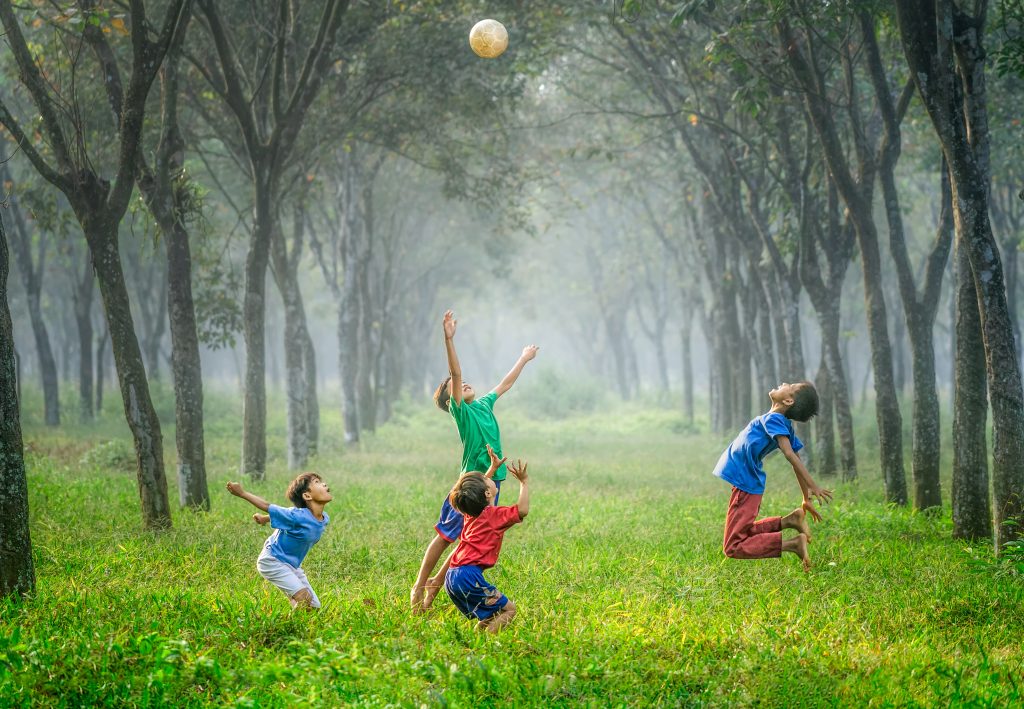How to Build Resiliency in Children with Dr. Denise MD

What means to be resilient? The capacity of being an independent, flexible, adaptive individual. Resiliency is all about self-efficacy and self-regulation. The fancy, modern way of being able to “get over it”, with more thought and science put into it than just grandpa’s stiff upper lip.
If your child is able to say “It’s ok” when you inform them they won’t be getting that Nintendo Switch they wanted so bad, congrats! That’s resiliency for you.
You may be thinking that resiliency would be a great trait for your son or daughter to have in a world where kids seem to be more susceptible to frustration and not having it their way all the time. It sure would have been an useful skill for us ex-gamers back in the time, instead of having resorted to video games to handle everything life threw at us.
However this goes beyond rejected expenditures in electronic merchandise, or people you don’t know making unwise life decisions in our childhoods.
Research shows that 50% of lifelong mental issues start before age 14, 75% before age 24.
Children who have better impulse control and the ability to manage stress tend to make better choices; they are also more liked, more integrated in their communities, and are at lower risk of struggling with issues like depression or substance abuse later in their adult lives.
A thorough approach to anything that helps your child’s early development is crucial for their wellbeing. There are myriads of different methods and approaches out there for the curious or concerned to explore, but what about the essentials?
In a recent interview with Dr. Denise MD, she recommended a “Holistic Health and Wellbeing Perspective”. In summary, Denise told us to pay extra attention to the core of any balanced life: Nutrition, Exercise and Sleep.
Eat a Plant-Based Diet
According to the doctor, a plant-based diet should be encouraged: things like nuts, fruits and vegetables, sometimes difficult or expensive to include in the diet yet ever so important.
And it’s not only what your children eats but how they do it as well: you may want to observe their digestion. Is something that looks completely harmless making their stomach hurt all the time? They may be intolerant, or the food heavy to digest. Take notice of the subtler details and make nourishment into a mindful ritual.
Consistent Exercise
There’s nothing to let nutrients sink in properly like exercise: that thing parents push their rowdy spawn to do, to keep them blessedly distracted during those awkward hours between the end of a school day and the next.
That may be a reason, in some cases a really good one, but exercise is mainly health thing. Not just to be good and look good, but also to feel good. Exercise helps the regulation (self-regulation) of emotions. When done right, it improves focus, the perception of self and the own body, and the release of dopamine improves mood while decreasing anxiety at the same time.
150 minutes, or 2 hours and half of moderate exercise per week should do; extracurricular activities are perfect for this. If you or your children are time-bound, 75 minutes of more rigorous exercise (for example in the weekends) works fine too.

Good Sleep
After your children are well fed and their health is in check, they deserve a good rest. Sleeping is essential for functioning, no screens should be allowed at least one hour before bedtime.
Exercise shouldn’t be done too late either; after a workout or sports session the basal temperature of the body increases, making it harder to fall asleep. Of course, caffeine (and for adults alcohol too) is not recommended.
And don’t use the bed to do homework or work. The brain works by associating concepts and turning them into habits: You want your brain, and your children’s brain, to link “bedroom” with “good sleep”. The best way to ensure your quality of life is to make a clear statement in your life and walk the walk; same hours, same actions.
All these are good suggestions, but what do they have to do with resiliency? Is resiliency acquired only by implementing good habits? Part of it, yes. But attitude is also essential.
Need help with your child’s gaming addiction?
Mindfulness and Positive Mindset
Awareness is the ability not to be alert (which is different) but to be present, fully experiencing the moment, especially when these moments are full with distractions, and distracting technology. 2 Ms come in handy: Mindfulness and Meditation.
Awareness can also play a critical role in mental and physical health; knowing your body and your thoughts makes detecting problems much easier.
Once these skills have been mastered into oneself, there is a social side of awareness to take into account.
Cultivate Gratitude
Gratitude, the ability to, once the reality surrounding yourself is perceived, realizing how much in your favor you have, praise the good things in your life for what they are, since they may as well not be.
Encouraging this positive mindset into your child will foster in him a sense of generosity: Things are not so bad and life is not just about myself only. You should encourage them to get involved with others in a way they feel comfortable, to further expand their boundaries, promoting eye contact, active listening and involvement in conversations, asking for their opinions, and other useful, and healthy social skills.

Relationship With Self
Lastly and above all, according to Denise, you should nurture their relationship with themselves. Teach them to accept themselves, reframe their hardships into opportunities. Every flaw and mistake is a chance of learning something new, improve and grow.
Every problem should be addressed from a position of kindness, forgiveness and understanding. This is not the same as permissiveness. Resiliency means to exert adaptive thinking: letting go of the past without judgement, and focus on what can be done better, expressed better, felt better, lived better.
This is what we call the “Hero” mindset (opposed to the “Victim” mindset). The capacity and the attitude to reflect and overcome every crisis that may and will come, learn from it, and thrive.
In today’s day and age, building resiliency in children is more important than ever. Follow the steps we’ve outlined above and you’ll be on track to help your child live a healthy and successful life.
Lost Your Child to Gaming?
I understand how you feel, because I was addicted to playing video games. In fact, I dropped out of high school, never went to college, and even wrote a suicide note. That is until I learned “why” I was so drawn to games. Today I’ve been game-free for seven years, and I’m finally reaching my full potential! Now I want to help your child do the same.
That’s why I’ve created Reclaim. I’ve taken my years of experience, and thousands of hours studying this subject, and distilled it to exactly what you need to know to help your child overcome their video game addiction.
Cam’s book Reclaim is brilliant and is highly needed. We strongly recommend Reclaim to parents seeking help and solutions for their kids struggling with digital media overuse. – Andrew Doan, MD, PhD (author, speaker, and neuroscientist) and Julie Doan, RN (author, speaker, and life coach)
